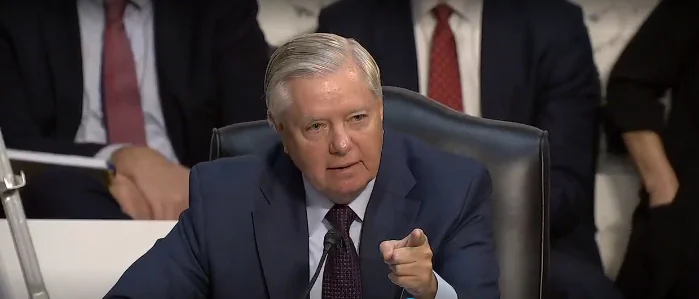A special grand jury recommended a few weeks ago that the Fulton County District Attorney Fani Willis bring racketeering charges against 39 people, including the former president, Donald Trump, Senator Lindsey Graham and former Georgia Senators Kelly Loeffler and David Perdue. The special grand jury met last year, but the report was only released Sept. 8, as Willis wanted the report to remain confidential until she decided what charges to bring. The panel did not have the power to issue indictments, but it had full subpoena power and could call witnesses, so Willis sought an indictment of Trump and 18 others from a regular grand jury using the evidence the special grand jury gathered.
Graham, Perdue and Loeffler were not indicted. While determining who to bring charges against, the District Attorney had to decide which prosecutions were most likely to succeed. As the indictment is a Racketeer Influenced and Corrupt Organizations (RICO) indictment, everybody on the indictment needs to be proven to have taken part in the conspiracy to overturn the 2020 presidential election results in Georgia. Additionally, while the special grand jury heard only from the prosecution, in an actual criminal trial, the jury would hear from the defense as well, making Willis’s job even more difficult. In a criminal trial, the jury’s decision to convict must be unanimous.
The special grand jury charged Trump in three areas: his call with Georgia’s secretary of state Brad Raffensperger, calls to “multiple Georgia officials and employees” and the “national effort” to overturn the election results. However, in all three of these votes, one juror voted against bringing charges against Trump. The reasons for the juror’s votes are not known, but in a high-profile and politically charged case such as this one, it is extremely possible that jurors struggled to separate their own views on Trump and the election from the evidence presented by the prosecution.
Willis has received some criticism for choosing not to prosecute all 39 people that the special grand jury recommended they bring charges against. While it is important for all that interfered with the election process to be held responsible for their actions, it is also vital to recognize that, in this criminal case, the jury needs to unanimously decide that everybody on the RICO indictment took part in the efforts to overturn the presidential election.
Graham was investigated by the special grand jury because of a phone call he made to Georgia’s Republican Secretary of State Brad Raffensperger. According to Raffensperger, in a phone call made on Nov. 13, 2020, Graham asked Raffensperger to illegally set aside lawfully cast ballots. Graham, however, has continued to deny these allegations. The conflicting accounts of this telephone call mean that the prosecution of Graham is unlikely to succeed. The other people that were removed from the indictment were removed because, like Graham, it was unlikely that they would be found guilty; or because they will be indicted separately; or because they made deals with the state.
Notably, Trump is still allowed to run for president if he is under indictment or even if he is convicted. It is clear that, at least in Trump’s case, the indictment has thus far had no effect on his political plans. While Trump is likely to remain the frontrunner for the Republican nomination, recent polling shows that the indictments may hinder his success in the general election. Even if the legal system does not adequately punish Trump for his unlawful and unethical efforts to overturn the 2020 election, much of the public is taking these proceedings very seriously.
In August, a conservative argument emerged that said the Constitution bars Trump from serving as president because he “engaged in insurrection or rebellion against the [United States].” This provision is Section 3 of the Fourteenth Amendment, which was initially written to keep Confederate officers and soldiers from holding office. However, this provision is still in effect and entirely independent from criminal prosecutions. If this issue were to be deemed important enough to be resolved, that would happen in court independent of a jury. This deliberation would be a very different proceeding from the current indictments in Fulton County, and it is important to investigate this provision sooner rather than later to avoid a major crisis like the one that would arise if Trump was deemed unable to serve after winning the Republican nomination.
Eleanor Smith, FCRH ’26, is a history and American studies major from St. Paul, Minn.










































































































































































































